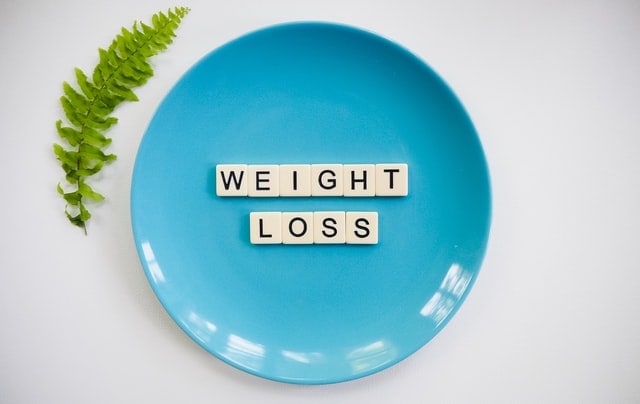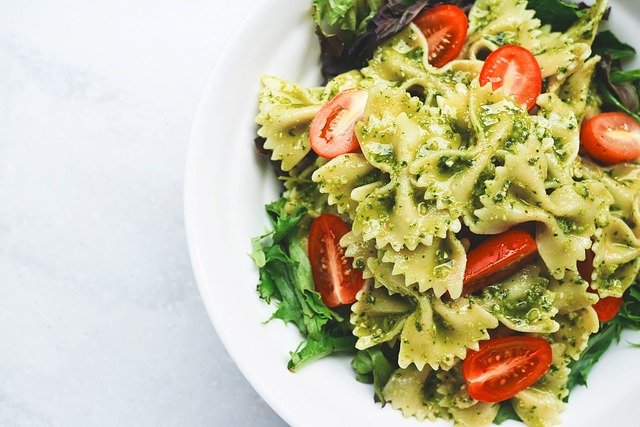It is predicted that by 2025 nearly 75% of the Australian population will be obese or overweight. This puts three in every four individuals at a higher risk of heart disease, diabetes and even certain cancers. Losing even a few kilos can go a long way in improving your health and lowering the risk. This is where weight loss diets come in.
Weight loss is a function of higher calorie expenditure and lower consumption. When you go on a diet, you lower your intake of calories so that your body can burn excess fat. These diets work best if they are sustainable, do not cut out essential food groups, and are not very difficult to execute.

A good diet allows you to indulge in a wide variety of foods while losing weight. It is not only about the food you eat though; weight loss also depends on maintaining healthy eating habits and understanding the importance of how and when you eat your food.
What are weight loss diets?
There are many types of diets that focus on reducing weight. They usually involve limiting certain types of food choices and swapping them for low fat options so that you can drop the excess weight.
A good diet can help you reduce your caloric intake while ensuring that your nutritional needs are not compromised. A good diet needs to be practical in the long-term and should adhere to the Australian Dietary Guidelines which make sure you are getting the right foods and all the nutrients you need to be healthy.
While it is easy to succumb to the lure of quick results and instant weight loss offered by fad diets, you should be wary. A diet that promises immediate results is usually not good for you in the long run. They may help you lose some weight but could lead to other problems like vitamin deficiencies.
How can I recognize good weight loss diets?

A good diet has the following characteristics:
- It reduces your overall caloric intake
- It allows you to consume a wide variety of foods from all five food groups
- The portion sizes are not inordinately large
- It prescribes practices that you could do in the long-term
- It is not radical and does not require you to drastically change your consumption patterns
- It suggests swapping processed foods laden with saturated fats, salt and sugar for healthier alternatives such as freshly cooked food made from fruits, vegetables, lean meats, eggs, beans, wholegrain and unsaturated fats
What are the different types of diets for weight loss?
There are two primary classifications for diets that involve weight loss, at least within Australia:
- Ready-made food diets:
This is the easier of the two options to follow for most Aussies. It involves a ready-made food delivery service that allows you to choose from online options and receive your delivery in quick time. You can get your food delivered fresh or frozen and can customize it to your dietary and budgetary needs.
- Meal planning diets:
You can also opt for weight loss through meal planning. This needs you to whip up your own meals but provides you with guidelines and templates to make it easy. Some of the guides even provide you with grocery lists, doing most of the work for you. They tend to cost more in terms of time and effort but help you cut down on costs while ensuring you have total control over your meals.
How are fad diets different from weight loss diets?
A ‘fad’ diet is a diet that promises quick results and aims for rapid weight loss. These types of diets tend to be heavily advertised and have little to no scientific backing. They make you lose weight by often cutting out entire food groups from your diet, which can leave you prone to nutritional deficiencies.
The weight that you tend to lose on a fad diet is mostly water and muscle, not extra fat. All fad diets share some characteristic features which make it easier to differentiate them from other diets. These features are:
- Extreme weight loss
- Short-term alterations to food plans and exercising
- Focus on pills, shakes, and ready-made food
While you might lose some weight on a fad diet, they are very difficult to sustain and can lead to long-term health concerns. Some of the potential risks include:
- Headaches and migraines
- Unexplained fatigue
- Sleeping problems and insomnia
- Rapid weight loss followed by even faster weight gain
- Reduced body temperature
- Lower metabolism which puts you at increased risk of future weight gain
- Loose bowels or constipation
- Reduced bone density and muscle mass
- Eating disorders
- Constant feelings of hunger leading to food cravings
- Hair loss or skin problems
Are crash diets the same as fad diets?
A crash diet is similar to a fad diet but there are subtle differences between the two. A crash diet is specifically for weight loss and while there is no accepted definition (at least in a medical sense) for a crash diet, there are certain characteristics that make it different:
- There is no gradual approach to a crash diet. You reduce your calorie intake drastically from the onset.
- Your daily calorie consumption is usually lower than the amount you need to maintain current weight so you will notice quick weight loss.
Like fad diets, crash diets deliver on their promises in the short run but make you vulnerable to long-term health issues. You’ll end up dropping weight because of the extreme calorie restriction but it comes at the cost of your long-term health.

Such drastic changes to your normal diet are not good for your mind and body. While a crash diet does not focus exclusively on cutting out food groups like fad diets do, it still poses the following risks:
- Substantial loss of muscle mass
- Desirable weight loss but it does not all come from undesirable body fat
- Dramatic fall in metabolic rate which makes it difficult to drop weight in the long run
- Extreme food cravings and food binges
- Drastic rebound effects which make you put on even more weight than before
There are so many weight loss diets out there. Which are the best types of diets?
In addition to all the fad diets, there is a multitude of other diets out there, all of which promise a lot but usually fail to live up to their lofty claims. Most people who struggle with weight know the vicious cycle – spend a substantial amount on special foods or meal services for a fad diet that lasts for a month, lose a little weight, only to put it all back on again when the diet is over. You know how hard it can be to find a good diet.
Most of the different diets are based on pseudo-science and lack any concrete research to back their claims. They could even result in a series of unpleasant side effects.
Here is a list of ten diets that have been backed by science and have proven their mettle over the course of the years:
- DASH Diet
- Paleo Diet
- Weight Watchers Diet
- Mediterranean Diet
- New Atkins diet
- CICO Diet
- Intermittent Fasting
- Nutritarian Diet
- Ornish Diet
- Keto Diet
How do weight loss diets impact my health?
The food you eat has a direct impact on your health and wellbeing as well as your weight. It is not about eating diet foods but rather about being aware of how and what you eat. A healthy diet ensures that you stay in optimal health and remain free of disease.

Most dubious weight diets count only the calories consumed but a good diet goes beyond that. Among all the types of diets that work for your health, the healthy approach would be to focus on eating a wide range of foods from all five food groups. This includes eggs, fruit, low-fat dairy, vegetables, beans and fish.
A good diet would also get you to reduce your consumption of saturated fat, red meat, added sugars and processed foods. Apart from losing weight, a diet like this would also reduce your risk for the following health conditions:
- Depression
- Cardiac and heart diseases
- Diabetes
- Chronic diseases
- Cancer
- High blood pressure
- Obesity
Eating healthy to lose weight
You do not always have to go on a diet to lose weight. For many people, just making healthier food choices can help drop the extra weight. While diets do play an important role in helping you manage your weight and ensure optimal health, any diet can work well for you if you follow these food related pointers:
- Eat smaller portions
- Consume a wide variety of foods from the five food groups
- Never skip breakfast
- Get enough fibre to reduce hunger pangs and improve gut health
- Eat fresh fruit and vegetables
- Cut down on processed foods loaded with fat, salt and sugar
- Eat on a consistent basis and plan ahead to avoid snacking
- Reduce takeaways and eat leftovers from home cooked meals instead
- Hydrate with plenty of water and avoid sugary beverages or packaged juices
- Cut down on alcohol, caffeine and other stimulants
If you’re unsure of how to begin, read our post about Healthy Eating for Beginners.
Talk to someone about weight loss diets
If weight loss is your goal, you could start by talking to a nutritionist online or dietitian. This will give you an understanding of how your diet and your weight are linked.
You may also be asked to talk to your medical practitioner, especially if you have pre-existing medical conditions. A doctor is qualified to judge what would work best for you and your overall well-being in the long run.
Ask around within your social circle for references from family and friends. You may like to do your research and check reviews online to find a good nutritionist or dietitian to help you formulate a healthy eating plan. You could also seek referrals from your local clinic or medical practitioner because they are likely to refer you to verified professionals.
Avaana can help you find a dietitian to help you understand weight loss and nutrition.
What NOT to do when on weight loss diets
There are a few things you must bear in mind when trying to lose weight through dieting:
Never skip a meal: While weight loss is about cutting down on calories, skipping meals is not the ideal solution to losing weight. Skipping a meal will not only leave you hungrier but it also disrupts your metabolism. In addition when you finally do eat, you’re more likely to overeat or binge on junk to make up for the meal you missed. This ends up making you consume more calories than you should have and the altered metabolism puts you at a higher risk of weight gain.
Avoid all forms of crash diets: As highlighted before, not only are crash diets not sustainable in the long run but they also can lead to severe immediate health concerns for certain individuals
Steer clear of diets that restrict certain food groups: It has been mentioned above that fad diets do show results in the short run but their heavy emphasis on restrictions of certain food groups puts your health in jeopardy by depriving your body of certain essential vitamins and minerals
What else can I do to lose weight in a healthy sustainable way?
Besides food, the two most important factors that contribute to healthy weight loss are:
Exercise: The equation is simple: When you exercise, you burn calories. Weight loss is all about burning more calories than you consume, so it’s easy to see how exercise directly impacts weight loss. Besides weight loss, regular activity contributes to improved health for the brain, heart, muscle and bones.
Exercise is also a great mood booster and motivational factor which can further cement your commitment to engage in healthy behaviour. Australia’s Physical Activity & Sedentary Behaviour Guidelines recommend about 150 minutes of moderate or 75 minutes of vigorous physical activity every week. It is not about working out intensely but rather incorporating some form of movement into your daily life. Remember any form of exercise is better than no exercise at all.

Lifestyle: Your weight affects your lifestyle choices and your health. Examine your life carefully to understand if you are doing anything that adds to your weight. By identifying unhealthy patterns, you can take the steps to eradicate them.
For instance, here are some lifestyle choices that may be affecting your health :
Are you getting enough sleep or do you lie awake scrolling on your phone until late? Poor quality and quantity of sleep increases the risk of being overweight. It also makes you less likely to wake up with enough energy to work out.
Are you always stressed or anxious? Chronic stress or other mental health conditions can lead to emotional eating and weight gain.
Do you take medications that are causing you to gain weight? Certain medications like antidepressants or painkillers may slow your metabolism or increase your appetite, both leading to inordinate weight gain and obesity
Do you have friends or family members with unhealthy habits? Your social circle or the decisions made by family members at home directly influences your diet and exercise habits. For example, if your friends choose to go out for meals, you’re less likely to eat home-cooked food. Or if your brother or partner brings home a bag of cookies, you’re more likely to eat it. These factors have a huge bearing on your weight.

Try hanging out with people who enjoy exercise and think about their health so that you can begin to make it a part of your life. You’ll find people in online communities, workshops, classes and exercise groups. One of the best ways to making positive changes to your life is to interact with those who are working towards weight loss goals. You will be motivated, will feel accountable, and will have a community that encourages you and answers questions.



